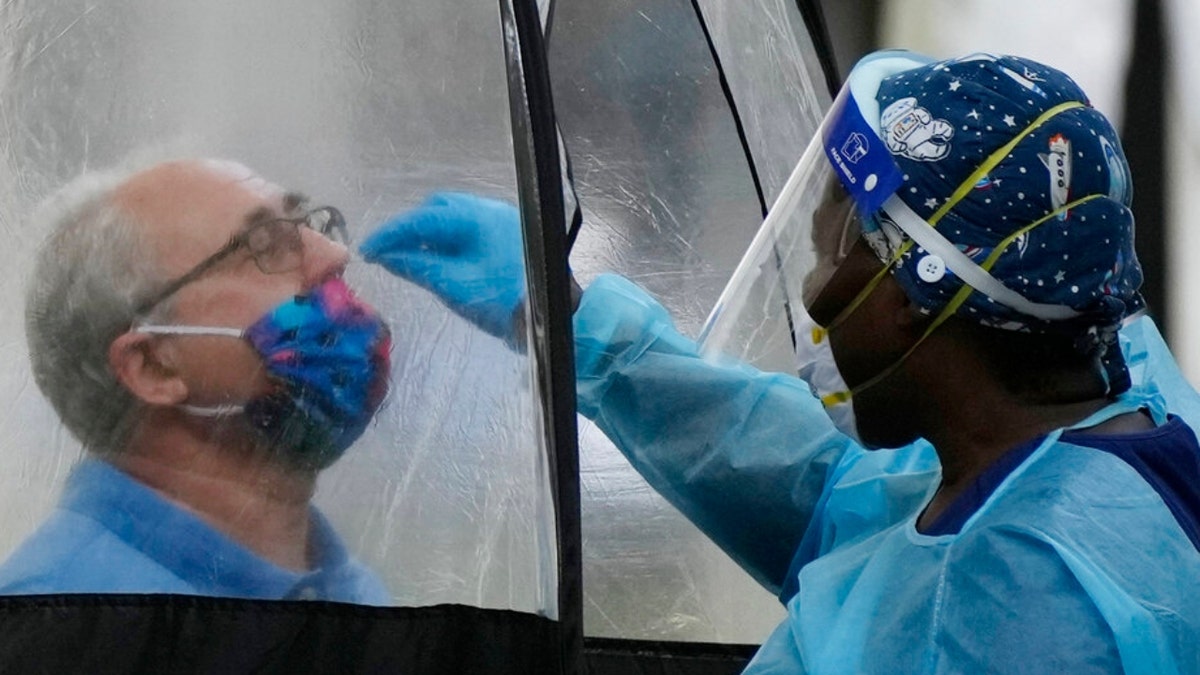Data shows omicron is most mild variant to date
Fox News medical contributor Marc Siegel explains on ‘Tucker Carlson Tonight’ how the United States should follow South Africa on omicron response.
The rapid spread of omicron across the globe is likely due to the COVID-19 variant's ability to evade immunity offered by vaccines better than delta, according to a Danish study released last week.
Unvaccinated individuals were more likely to be infected by both variants and also had "higher transmissibility" in comparison to vaccinated individuals, but they were just as vulnerable to omicron as they were to delta.
Vaccinated individuals, meanwhile, were 2.7-3.7 times more susceptible to omicron than they were to delta.
"Our findings confirm that the rapid spread of the Omicron [variant of concern] primarily can be ascribed to the immune evasiveness rather than an inherent increase in the basic transmissibility," the University of Copenhagen researchers wrote.
The study, which examined 2,225 Danish households with omicron and 9,712 households with delta, has not been peer-reviewed.

A worker from USA Health prepares to vaccinate a person for COVID-19 during a drive-up clinic in Mobile, Ala., on Thursday, Aug. 12, 2021. (AP Photo/Jay Reeves)
Vaccine effectiveness was reduced to around 40% against symptoms and 80% against severe illness for omicron in the fully vaccinated. Booster shots increased those numbers to 86% and 98% respectively.
Booster-vaccinated individuals were not only well-protected against hospitalization, but they were also less likely to transmit the virus compared to individuals who had received two doses, according to the study. Unvaccinated people were most likely to transmit the virus.
FAUCI TEASES NEW TESTING RECOMMENDATION DESPITE SHORTAGES
Omicron is similarly effective at evading immunity offered by prior infection, according to a study from the Imperial College London COVID-19 response team.
The new variant was 5.41 times more likely to reinfect someone than delta was, the researchers found.

A man is tested for COVID-19, at a walk-up testing site run by Nomi Health, Tuesday, Dec. 28, 2021, in downtown Miami. (AP Photo/Rebecca Blackwell)
While omicron may more easily evade immunity, it's also been associated with milder disease, according to multiple studies.
The researchers at Imperial College London found that individuals infected with omicron are 40% less likely to spend a night or more in the hospital.
Researchers at the LKS Faculty of Medicine at The University of Hong Kong found that omicron "infection in the lung is significantly lower than the original SARS-CoV-2, which may be an indicator of lower disease severity."
COLLEGE STUDENTS FACE UNCERTAINTY AS SCHOOLS GO REMOTE, DELAY RETURN TO CAMPUS
Dr. Rochelle Walensky, the director of the CDC, said last week that "the disease is mild" in almost all the cases seen so far in the United States.
"What we generally know is the more mutations a variant has, the higher level you need your immunity to be," Walensky told the Associated Press. "We want to make sure we bolster everybody’s immunity.

Pharmacy technician Hollie Maloney loads a syringe with Pfizer's COVID-19 vaccine at the Portland Expo in Portland, Maine. ((AP Photo/Robert F. Bukaty, File))
CLICK HERE TO GET THE FOX NEWS APP
Omicron was responsible for 58.6% of all new cases in the United States in the week that ended Dec. 25, according to the CDC.
The 7-day average for new cases in the United States is at a record-high, standing at 316,277 new cases on Dec. 29.









































